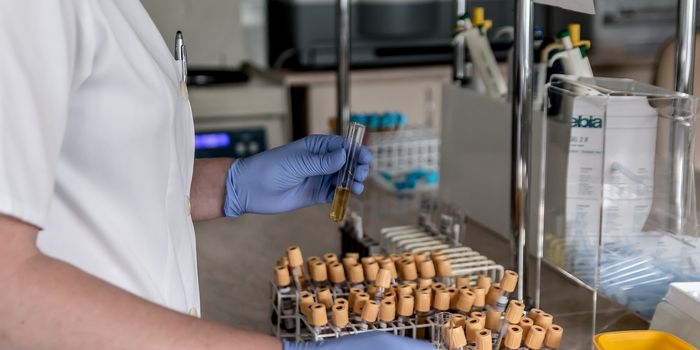A New Blood Test Could Make Diagnosing Fibromyalgia Much Easier
Once dismissed by many clinicians, it is now estimated that as much as six percent of the world's population has fibromyalgia, a complex disease in which the body is affected by pain in the joints and soft tissue. The pain may be mild to severe, though it does not damage bones or joints. Patients may also have sleep trouble, headaches, restless legs, or depression and anxiety. These symptoms can be seen in many other common disorders that affect the joints like arthritis and lupus. Diagnosing fibromyalgia can therefore be challenging, and many patients have to go on a kind of medical odyssey before they receive the proper diagnosis. It is also challenging to treat fibromyalgia, and these problems can seriously impact the quality of life of patients as well.
A new study could help patients that are struggling to get a diagnosis. Reporting in the journal Biomedicines, scientists have created a blood test that can diagnose fibromyalgia. This is a major step forward in fibromyalgia research and treatment, and may help scientists develop better options for therapeutics and patient care.
Right now, there is no cure for fibromyalgia, though there are some medications and techniques that can help manage the symptoms.
In this study, the investigators obtained blood samples from people who had been diagnosed with fibromyalgia, people who have been diagnosed with other joint disorders, and unaffected individuals. The scientists isolated small molecules in the blood and found those that differentiated between the groups.
The researchers applied a technique called Raman spectroscopy that analyzes samples with a laser to see how they react. Gold nanoparticles were also utilized in this process to refine the results more, and improve interpretation of the data. With the help of computational tools, the investigators identified a kind of chemical signature that revealed patients with fibromyalgia.
While more testing and validation is needed with larger samples, the researchers are hopeful that the test could be used in clinics within two years.
"This tool is fast, accurate and non-invasive, and can easily be integrated into the clinical environment to improve the quality of life of patients with fibromyalgia," said study co-author Sílvia de Lamo, a researcher from the University of Rovira i Virgili who performed part of the study at the University of Ohio.
Sources: Universitat Rovira i Virgili, Biomedicines









